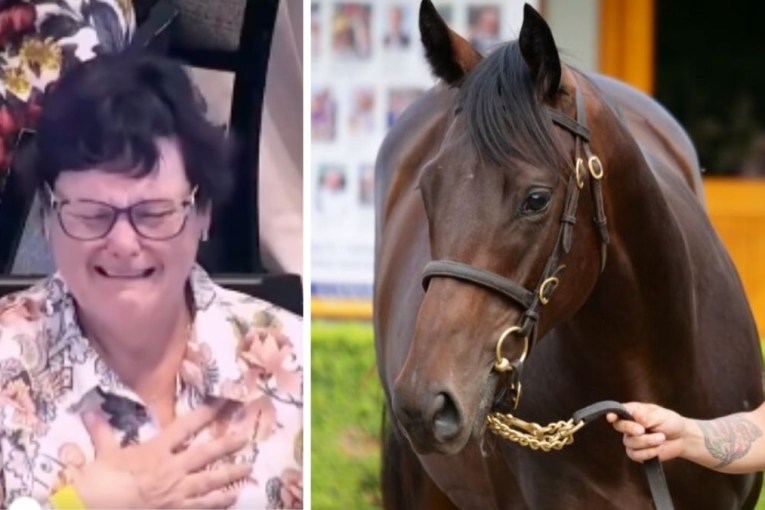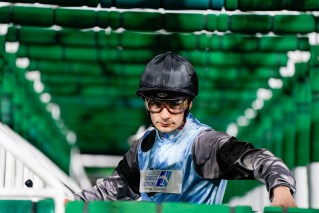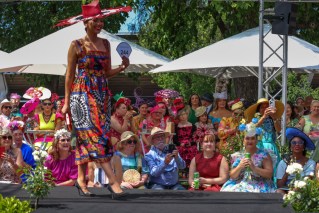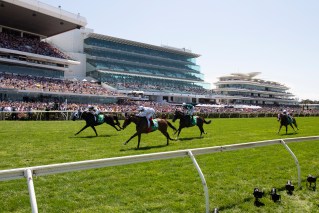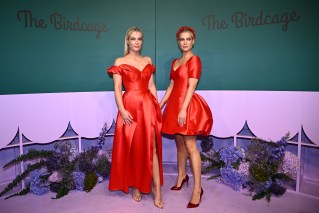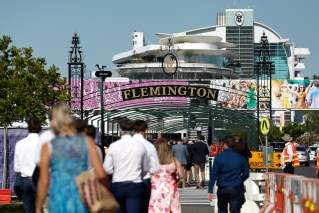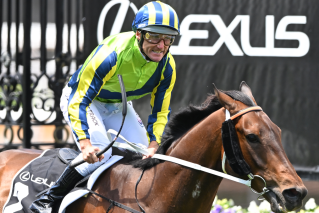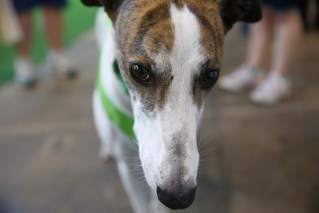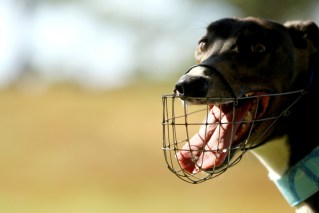Racing Victoria launches $25m horse welfare plan following 7.30 slaughter claims
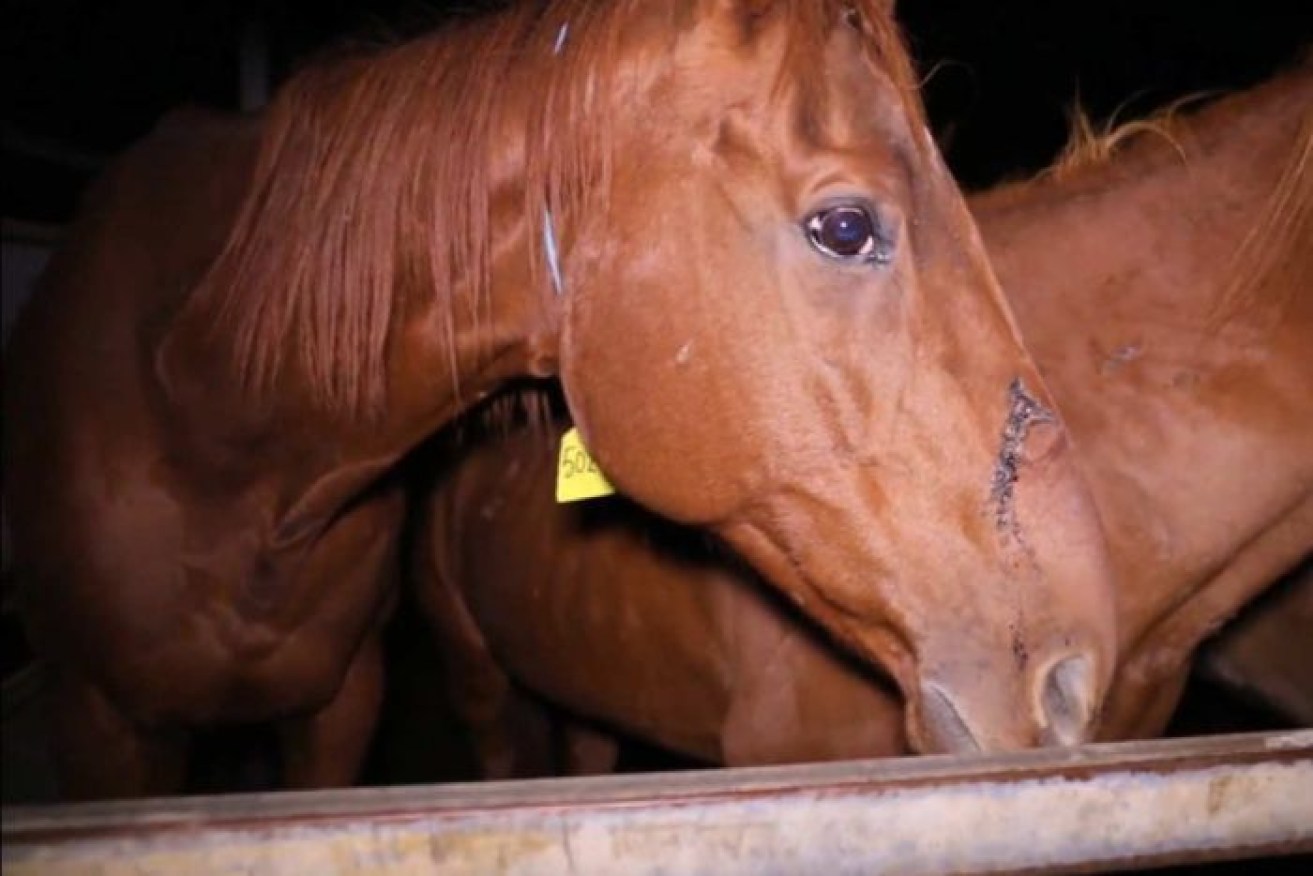
7.30 exposed cruel treatment of retired racehorses in facilities in NSW and Queensland. Photo: ABC
Veterinarians will be sent to Victorian farms to euthanase retired racehorses to save them from being killed in abattoirs and knackeries, as part of the Victorian racing industry’s response to an ABC investigation that exposed cruel treatment of thoroughbreds.
The on-farm euthanasia scheme, which would be administered by Racing Victoria, is part of a $25 million plan announced by the organisation on Monday to improve the welfare of horses after they finish racing.
The plan follows the ABC’s 7.30 program revealing hundreds of registered racehorses were being discarded at slaughterhouses in NSW and Queensland in contravention of racing rules, rehoming policies and animal welfare guarantees.
Racing Victoria chair Brian Kruger said the commitment extended and brought forward several previously planned measures, but he rejected suggestions the racing industry had been aware of the practices exposed by the ABC investigation.
“To suggest that anyone in our industry had any idea of the treatment of those horses at those facilities is just wrong. We did not” he said.
“We’ve been overwhelmed with ideas and support from so many people in our industry who were horrified not just by what was portrayed by the ABC, in terms of the horrific treatment of horses on the program, but the implication that people that work in our industry and the people that love horse racing don’t care about horses.
“I can tell you there is nothing that could be further from the truth.”
Mr Kruger said while the racing industry did not have “jurisdiction or oversight” over retired racehorses, it was “incumbent on us to do what we can to ensure our horses have opportunities for a rewarding life after racing”.
He brushed off calls for a ban on sales of retired racehorses to so-called kill buyers, who buy horses that are then slaughtered for pet food or human consumption.
“You can’t just have an outright ban and not deal with the causes,” Mr Kruger said.
“That would drive the problem underground and will not solve the problem.”
Mr Kruger said Racing Victoria was seeking instead to reduce the number of horses being slaughtered through a range of measures, including an extended rehoming program for retired thoroughbreds and a foster program to provide short to medium term support for horses in need.
He called on the federal government to work with its state counterparts to fast track a national horse traceability register.
In the meantime, he said, Racing Victoria would set up its own database of retired racehorses and would carry out an analysis of livestock sales.
“We want to know the whereabouts of Victorian thoroughbreds,” Mr Kruger said.
“We want to create more opportunities for retired thoroughbreds.
“We want to provide greater support for thoroughbreds in need.
“And we want humane euthanasia for horses where that is the best welfare outcome.”
Mr Kruger said Racing Victoria would administer a program to send registered veterinarians to farms to euthanase horses, where that was the best outcome for the animal, to reduce the numbers of horses being killed at abattoirs and knackeries.
“There may be situations where the best welfare outcome for a horse is actually to end up … at an abattoir or a knackery. We think they’re in a minority and we want to reduce the number of times that that happens, but we don’t think an outright ban is the solution at this point in time,” Mr Kruger said.
“What we want to do is have a viable alternative to horses going to the abattoir.”
The 7.30 investigation also prompted the Victoria Racing Club to direct 10 per cent of all public ticket sales for this year’s Melbourne Cup carnival, as well as 5 per cent of VRC membership fees, to a new $1 million equine wellbeing fund.
Victoria Racing Club chair Amanda Elliott said the move would give racegoers who were concerned about cruel practices a sense of contributing to a solution.
“That’s a sort of good feeling, for people who are concerned about this, who love their racing but feel ‘gosh, what do we do’, the fact that they are contributing to a fund right now … is something that’s going to mean a great deal to a lot of people,” she said.
Concerns over transparency of self-regulated programs
Elio Celotto, a campaigner from the Coalition for the Protection of Racehorses, described the Racing Victoria initiative as “a good start” but said the industry still had significant work to do.
“At least we’re seeing some progress being made but we would like to see a national plan that allows every racehorse the opportunity to live out the rest of their lives,” he told ABC Radio Melbourne.
Mr Celotto said his group estimated about $200 million was required annually to rehome retired racehorses across the country.
“There’s a huge oversupply of horses each and every year, not just in the racing industry, and that needs to be dramatically reduced,” he said.
“They breed so many horses hoping they’re going to find the next Winx or Black Caviar.”
Mr Celotto also cast doubt on rehoming programs in NSW and Victoria because they were self-regulated by the racing industry.
“There’s no transparency there whatsoever … you can’t find out any information about how many they’re rehoming,” he said.
Animal Justice Party MP Andy Meddick said the industry needed to take greater action to stop the overbreeding of horses.
“When up to 15,000 horses are bred *each year* there will never be enough homes – no amount of $$ will change that,” Mr Meddick said on Twitter.
